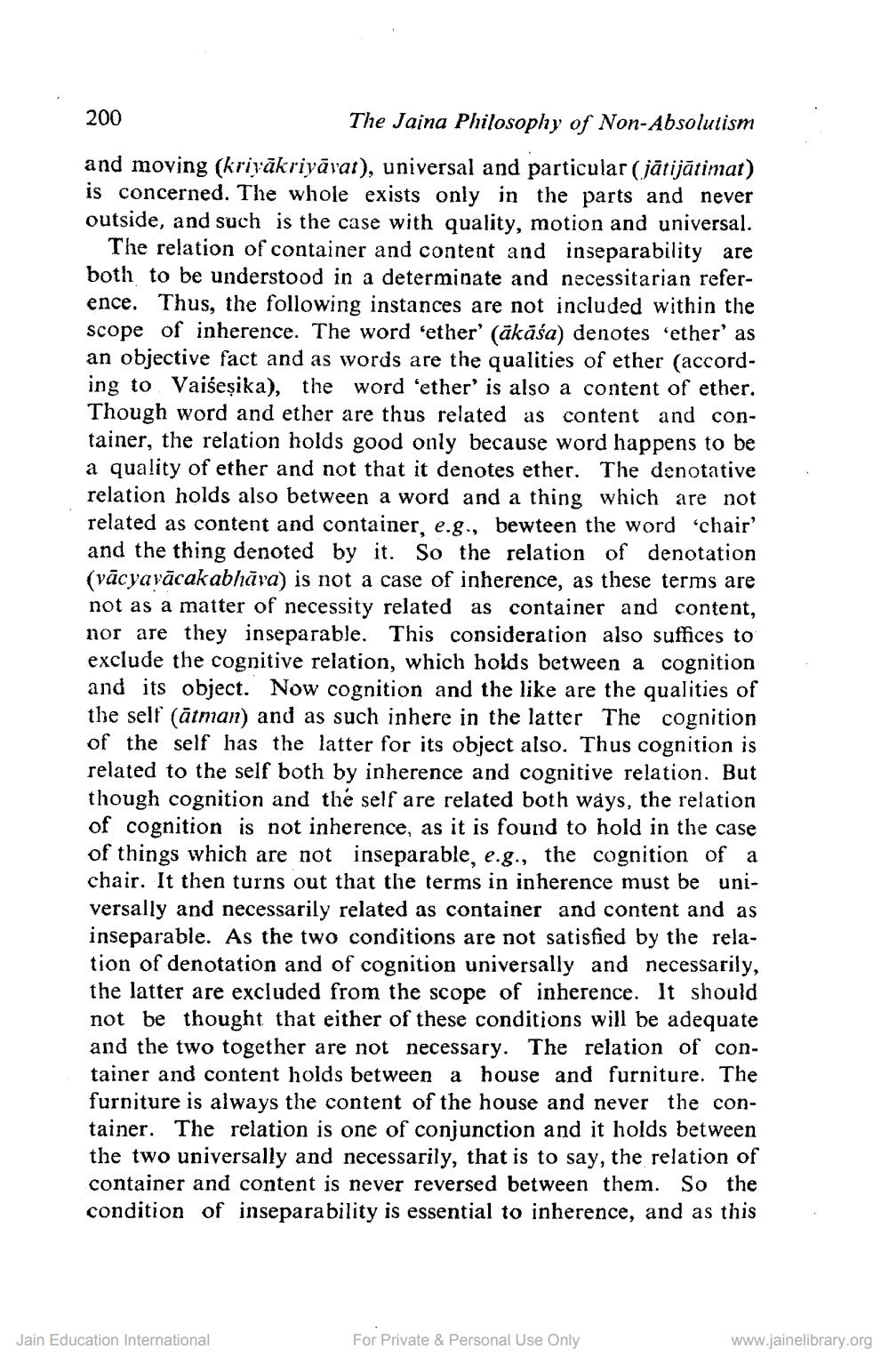________________
200
The Jaina Philosophy of Non-Absolutism and moving (krijākriyāvat), universal and particular (jātijātimat) is concerned. The whole exists only in the parts and never outside, and such is the case with quality, motion and universal.
The relation of container and content and inseparability are both to be understood in a determinate and necessitarian reference. Thus, the following instances are not included within the scope of inherence. The word 'ether' (äkāśa) denotes 'ether' as an objective fact and as words are the qualities of ether (according to Vaišeșika), the word 'ether' is also a content of ether. Though word and ether are thus related as content and container, the relation holds good only because word happens to be a quality of ether and not that it denotes ether. The denotative relation holds also between a word and a thing which are not related as content and container, e.g., bewteen the word 'chair' and the thing denoted by it. So the relation of denotation (vācyavācak abhāva) is not a case of inherence, as these terms are not as a matter of necessity related as container and content, nor are they inseparable. This consideration also suffices to exclude the cognitive relation, which holds between a cognition and its object. Now cognition and the like are the qualities of the self (ātman) and as such inhere in the latter The cognition of the self has the latter for its object also. Thus cognition is related to the self both by inherence and cognitive relation. But though cognition and the self are related both ways, the relation of cognition is not inherence, as it is found to hold in the case of things which are not inseparable, e.g., the cognition of a chair. It then turns out that the terms in inherence must be universally and necessarily related as container and content and as inseparable. As the two conditions are not satisfied by the relation of denotation and of cognition universally and necessarily, the latter are excluded from the scope of inherence. It should not be thought that either of these conditions will be adequate and the two together are not necessary. The relation of container and content holds between a house and furniture. The furniture is always the content of the house and never the container. The relation is one of conjunction and it holds between the two universally and necessarily, that is to say, the relation of container and content is never reversed between them. So the condition of inseparability is essential to inherence, and as this
Jain Education International
For Private & Personal Use Only
www.jainelibrary.org




